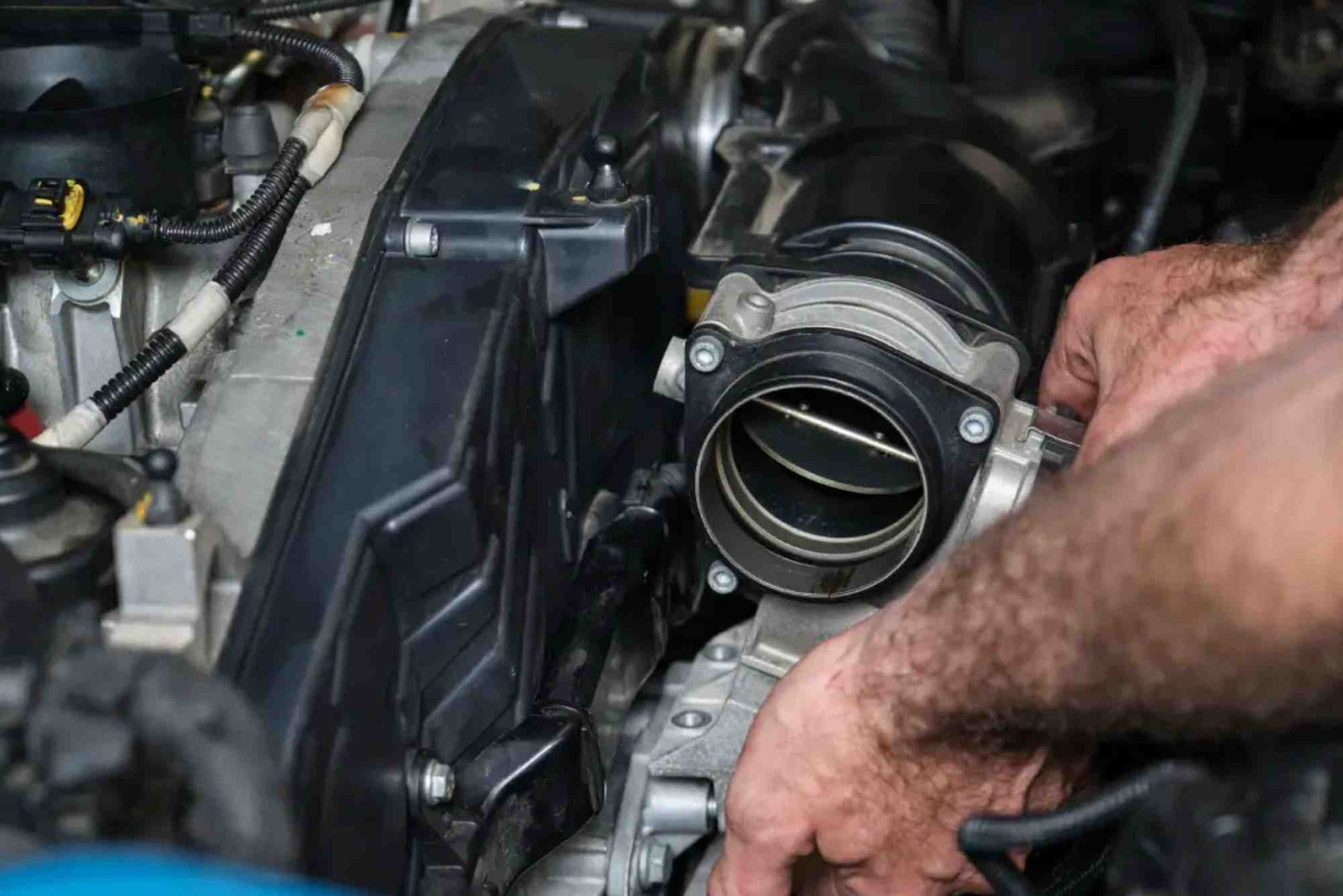Introduction
When your car shakes while accelerating but runs smoothly while coasting, it’s a clear sign something’s off. This issue can range from minor imbalances to serious mechanical faults. Understanding what causes the shaking can save you time, money, and stress. In this guide, we’ll explore practical reasons, simple checks, and professional fixes for when your car shakes when accelerating but not when coasting.
Understanding the Problem
Acceleration puts extra strain on your vehicle’s powertrain. When you press the gas pedal, components like the engine, transmission, and driveshaft work harder. If something in this system is misaligned, worn out, or damaged, vibrations become noticeable. When coasting, those stresses decrease, often masking the problem temporarily.
Common Causes of Car Shaking During Acceleration
Engine Misfire or Faulty Spark Plugs
A frequent culprit is an engine misfire, often due to worn or fouled spark plugs. Misfires make your engine run unevenly, creating jerking or shaking sensations, especially under acceleration. Replacing spark plugs every 30,000–50,000 miles can prevent this issue.
Worn or Damaged Engine Mounts
Engine mounts secure the engine to your car’s frame and absorb vibrations. Over time, rubber mounts can deteriorate, causing the engine to move excessively when accelerating. If your car stops shaking when coasting but vibrates under load, worn mounts could be to blame.
Unbalanced or Damaged Tires
Uneven tire wear or improper balancing can create noticeable shaking during acceleration. It’s especially common if you’ve recently hit a pothole or curb. Always check your tire balance and alignment during routine maintenance.
CV Joints or Axle Problems
Constant Velocity (CV) joints allow your wheels to turn smoothly. A damaged or worn CV joint can cause vibrations when accelerating. You might even hear clicking sounds when turning. Replacing bad joints early prevents more serious drivetrain damage.
Transmission or Driveshaft Issues
A bent driveshaft or worn U-joint may cause intense shaking that disappears when coasting. These components transfer power from the engine to the wheels, and even slight damage can disrupt balance. Transmission mounts can also loosen, producing similar symptoms.
Dirty or Clogged Fuel Injectors
If your car shakes primarily during acceleration, clogged fuel injectors could be disrupting the air-fuel mixture. Cleaning or replacing them ensures consistent performance and smoother power delivery.
Faulty Wheel Bearings
Wheel bearings support smooth wheel rotation. When worn, they create vibration and noise under acceleration. This problem worsens over time and can affect steering control, so prompt repair is essential.
How to Diagnose the Issue
Diagnosing why your car shakes when accelerating but not when coasting requires patience and attention to detail.
Observe When the Shaking Happens
Does it occur only at certain speeds or gear shifts? Knowing this helps isolate whether the issue is engine-related, tire-related, or drivetrain-specific.
Check Tires and Wheels
Inspect your tires for uneven wear, bulges, or embedded debris. Have a professional check the balance and alignment if you suspect issues.
Test the Engine
If you notice the shaking is more intense under load, have a mechanic test your spark plugs, fuel injectors, and engine mounts. A diagnostic scan can reveal engine misfires or sensor malfunctions.
Listen for Sounds
Clicking, humming, or clunking noises can pinpoint specific issues like bad CV joints or wheel bearings. Take note of when these sounds occur—during acceleration, braking, or turning.
Inspect the Drivetrain
Driveshaft vibrations typically intensify with speed. A mechanic can test for bends, loose U-joints, or worn mounts contributing to the shaking.
Preventive Maintenance Tips
Regular Inspections
Have your vehicle inspected every 6 months to catch small issues early. Routine checks of the suspension, tires, and mounts can prevent shaking problems before they start.
Maintain Tire Balance and Alignment
Rotate and balance your tires every 5,000–7,000 miles. Proper alignment ensures smooth contact with the road, minimizing vibration.
Keep the Engine Tuned
Regular oil changes, spark plug replacements, and fuel system cleanings keep your engine running efficiently. A tuned engine delivers consistent power and reduces stress on the drivetrain.
Avoid Sudden Acceleration
Gentle acceleration protects your transmission and engine mounts from unnecessary wear. Smooth driving habits contribute to overall vehicle longevity.
If the vibration persists despite basic checks, it’s time to visit a certified mechanic. Shaking that occurs only when accelerating usually points to drivetrain or engine issues that require professional tools to diagnose. Ignoring the problem can lead to costly damage or safety risks.
You can also refer to this Related Automobile article for broader car care insights and preventive maintenance ideas.
FAQs
Why does my car shake when I accelerate but not when I maintain speed?
This usually indicates a problem in the drivetrain—like bad engine mounts, misfiring spark plugs, or unbalanced tires.
Can bad spark plugs cause vibration during acceleration?
Yes. Faulty spark plugs can cause engine misfires, which often result in noticeable shaking when accelerating.
How much does it cost to fix car vibration issues?
Costs vary by cause—simple fixes like tire balancing may cost $50–$100, while drivetrain repairs can exceed $500.
Is it safe to drive when my car shakes while accelerating?
Short distances might be manageable, but it’s not advisable. Prolonged driving can worsen damage or lead to breakdowns.
Can low transmission fluid cause shaking?
Absolutely. Low or dirty transmission fluid can affect gear engagement and cause shaking during acceleration.
What if my steering wheel shakes when I accelerate?
This may indicate unbalanced tires, bent rims, or worn suspension parts. Get it checked immediately to prevent uneven tire wear.
If your car shakes when accelerating but not when coasting, addressing it early prevents long-term wear. Check your tires, mounts, and drivetrain components systematically. Don’t ignore minor vibrations—they often hint at issues that can grow worse over time.
For deeper insights on vehicle maintenance and troubleshooting, explore Car Shakes When Accelerating But Not When Coasting—a helpful resource filled with detailed guides and professional tips.
To learn More details about car systems and diagnostic tools, check official resources from trusted manufacturers.








